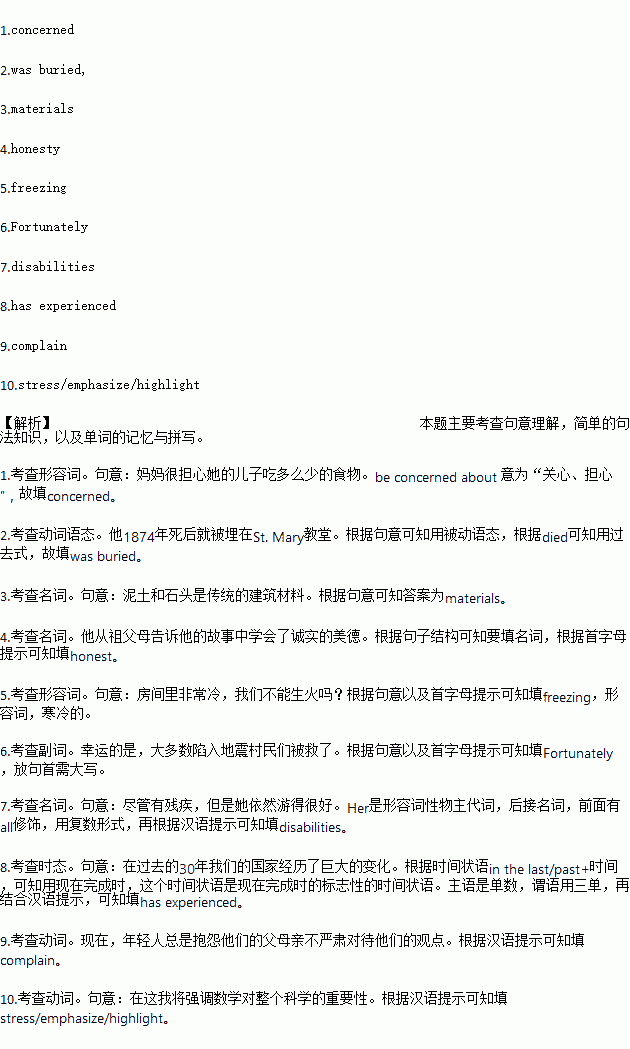题目内容
1.The mother is c______ about how little food her son eats.
2.He ______ (埋葬) in the church of St. Mary’s after he died in 1874.
3.Mud and stone are traditional building m______.
4.He learned the virtue of ______ (诚实) from the story told by his grandparents.
5.It’s f______ in the room, can’t we have a fire?
6.F______, most of the villagers stuck in the earthquake were rescued.
7.She swam very well despite all her______ (残疾).
8.Our country ______ (经历) great changes in the last 30 years.
9.At present, the young always ______ (抱怨) that their parents don’t take their views seriously.
10.Here, I will ______ (强调) the importance of mathematics to the whole of science.
练习册系列答案
 举一反三单元同步过关卷系列答案
举一反三单元同步过关卷系列答案
相关题目


 e extinguisher and the fire 6.(put) out.
e extinguisher and the fire 6.(put) out.